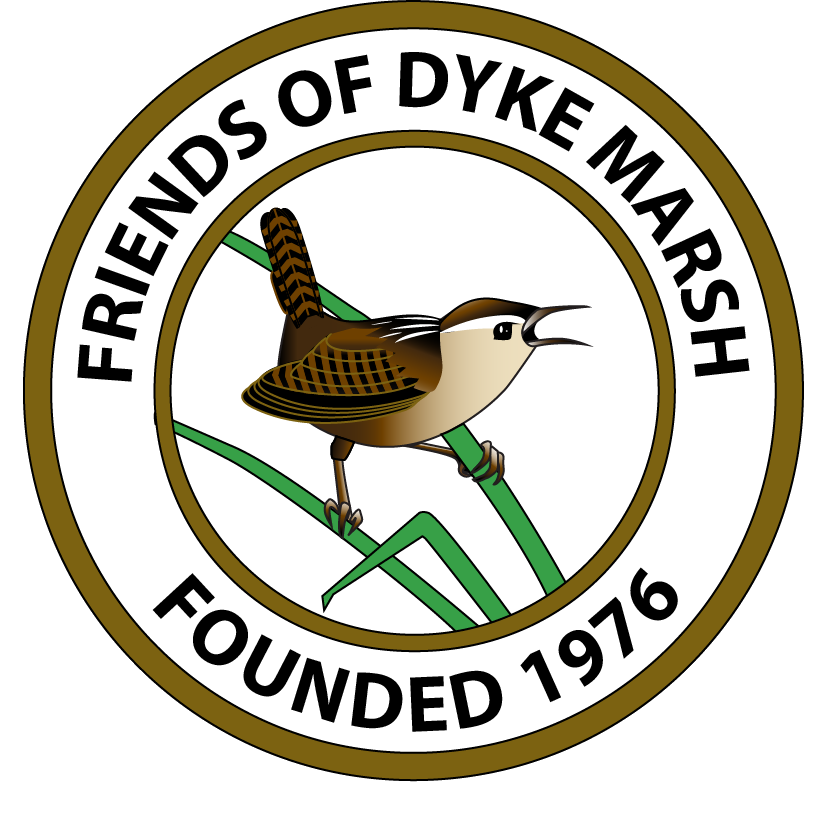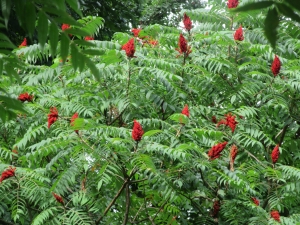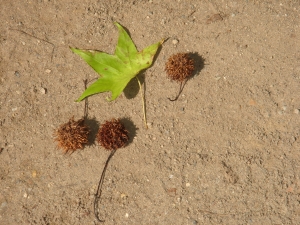Why insects need trees was the theme of the walk for 16 nature enthusiasts in Dyke Marsh led by arborist Jessica Strother on September 4, 2021. She titled the walk, “Trees and their Insect Friends.”
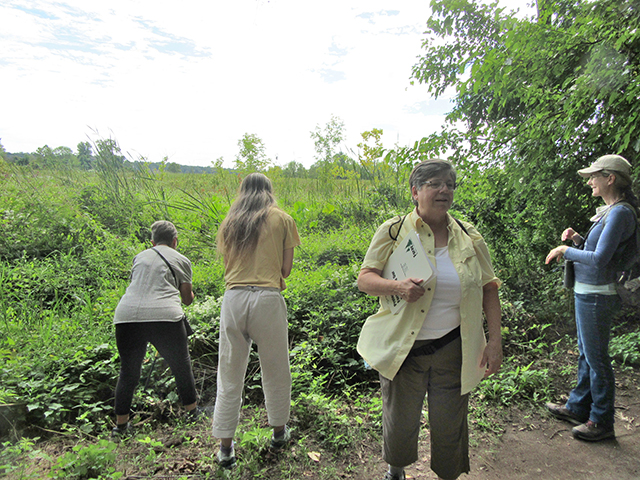 |
Insects have a critical ecological role. They are important for pollination, predation, decomposition, nutrient cycling, food for wildlife and other ecological functions. They are the “little things that run the world,” wrote naturalist E. O. Wilson. Insects are indicators of environmental quality, but several studies have found that many are in serious decline globally, a trend that some label the “insect apocalypse." Over the last 30 years, more than one quarter of land-dwelling insects have vanished, according to a 2020 study by the German Centre for Integrative Biology. |
| Jessica Strother, Walk Leader | |
Strother stressed the importance of host plants. Host plants are the plants which insects need to live on and off of.
Here are some examples she pointed out:
- Bees carry pollen between the yellow-orange spring flowers of tulip poplar trees (Liriodendron tulipifera).
- The smooth sumac (Rhus glabra), which has deep red fruits or drupes in the fall, is the host plant for the banded hairstreak butterfly (Satyrium calanus).
- American sycamores (Platanus occidentalis), trees with scaly white, tan and brown bark, are host plants for tussock moths (Halysidota tessellaris).
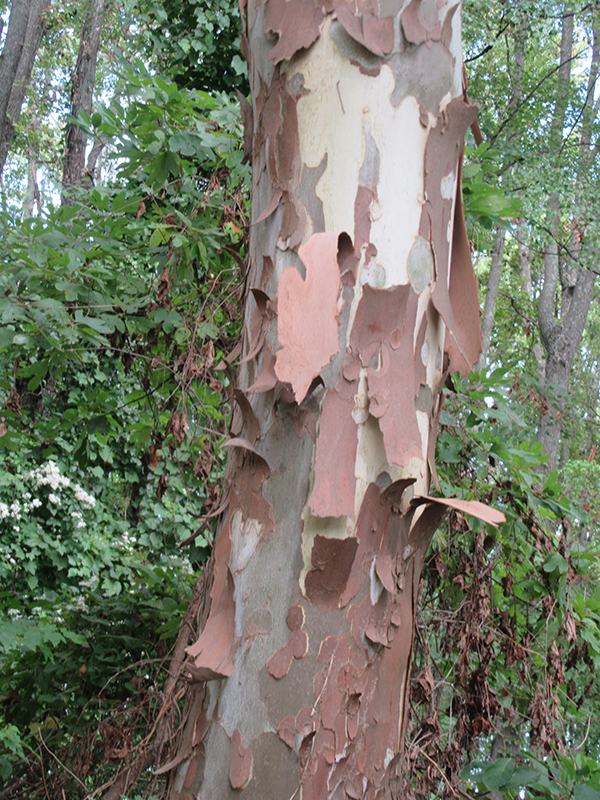
- The spicebush shrub (Lindera benzoin) is the host plant for the spicebush swallowtail butterfly (Papilio troilus). Its caterpillar is bright green and has false “eyes,” actually eye spots. Nick McNair shared his photos of the spicebush butterfly and its caterpillar.
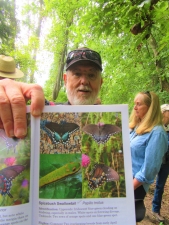 |
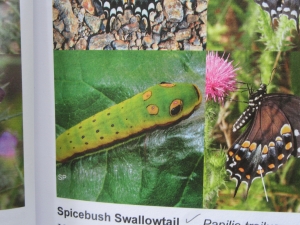 |
- Birds and squirrels feed on the seeds of sweet gum trees’ (Liquidambarstyraciflua) ball-shaped, spiky fruits.
- Oak trees (Quercus) support more life than any other tree in North America, including caterpillars, wasps and other insects, she said, citing University of Delaware entomologist Dr. Douglas Tallamy.
